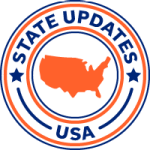
Policy Matters Brief July 20, 2020
As of July 20, 2020
California Division of Workers’ Comp considers pharmacy fee schedule change
Part of an informal rule-making process, the California Division of Workers’ Compensation (DWC) recently released a proposed change to the existing pharmacy fee schedule.
FORUM PROPOSAL
Resulting from a stakeholder discussion Forum, the division proposed fully assimilating the pharmacy fee schedule for workers’ compensation pharmacy claims into 100% of the Medi-Cal pharmacy fee schedule as required by existing Labor Code.
CHANGE PROPOSAL
The Division proposes the fee schedule be tied to reimbursement for an ingredient component and a dispensing fee component.
The ingredient component is proposed to be the lessor of: NADCAC (or WAC +0% where no NADAC), FUL or MAIC as compared to the pharmacy’s U&C charge.
The proposal offers a bifurcated dispensing fee based on the indicated pharmacy dispensing fee within the Medi-Cal reimbursement schedule.
The proposed dispensing fee(s) of $10.05 or $13.20 again as indicated by Medi-Cal.
PROPOSAL ADDRESSES PHYSICIAN DISPENSING AND COMPOUNDS
While the DWC initiated a similar forum discussion on this fee schedule proposal in 2018, the current proposal language on compounds modifies the 2018 proposal, somewhat.
To date, the forum is closed as initial comments were due by July 3, 2020. The Optum Public Policy and Regulatory Affairs Team will keep you posted on further developments.
US Dept. of Labor Office of Workers’ Comp medical fee schedules updated
Effective June 30, 2020, the US Department of Labor (DOL) Office of Workers’ Compensation Programs (OWCP) updated their fee schedules for workers’ compensation claims.
CHANGES INCLUDE
- Updated procedure coding and associated fees for medical and ancillary services along with related changes to medical billing and processing for provider reimbursement.
- Adopting the current procedure and item codes – CPT, HCPCS and CDT – for proper billing and reimbursement.
OWCP also indicated their new medical billing processor will handle medical bills, while they will retain the current pharmacy bill processing services.
Additionally, the notification also included a reminder of the recent opioid program requirements that took effect as of September 2019.
For more information on the adopted changes and fee schedule publication, please click on this link.
Florida Division of Workers’ Compensation Holding Stakeholder meetings in July
After an initial postponement of several stakeholder meetings, the Florida Division of Workers’ Compensation (DWC) planned two stakeholder meetings on key workers’ compensation policy.
July 15, 2020 – Topic: Proposed changes to Florida Rule 69L-31 – discussed proposed changes to the existing fee dispute processes, including modifications to fee dispute resolution rules, timeframes and forms to be filed by the petitioner and carrier. Information on that meeting is at this link.
July 22, 2020, 9:30 a.m. ET – Topic: Healthcare Provider Manual – healthcare and carrier medical billing and reporting responsibilities and other changes to the medical billing and reimbursement rules in Florida Rule 69L-7. Information on the virtual meeting can be found, here.
Oregon MLAC reviews workers’ comp claims for COVID-19
The Oregon Workers’ Compensation Management-Labor Advisory Committee (MLAC) has been holding public meetings to receive testimony from the public related to COVID-19. Testimony has focused on identifying problems or gaps in the worker’s compensation system relative to the COVID-19 outbreak and education about current opportunities for workers to file claims if they contract the virus at work.
MLAC has planned several meetings to allow committee members to thoroughly vet the issues. Then the committee will turn its attention to potential solutions and entertain stakeholder ideas, including a presumption.
Additional information concerning MLAC’s activities can be viewed online here. MLAC was created by the Oregon Legislature and provides a forum for business and labor to meet, explore and resolve issues involving the state’s workers’ compensation system.
Wyoming acute pain opioid prescription limit exceptions adopted
The Wyoming Board of Pharmacy (BOP) recently adopted exceptions to a 2019-enacted limit on the days’ supply of opioids for acute pain prescribed or dispensed to opioid naïve patients.
SF 46 (2019) amended the state controlled substances law to limit the days’ supply of an opioid or combination of opioids prescribed or dispensed for acute pain to opioid naïve patients to no more than a seven day supply in a seven day period.
That legislation also required the BOP to, by rule, establish reasonable exceptions to this, which the BOP has now done.
The adopted exceptions include:
- Chronic pain that cannot be managed without opioid treatment
- Cancer-related pain
- Palliative care
- Medication-assisted treatment for opioid addiction
An additional exception is for a patient who has been admitted for at least 12 hours to an ambulatory outpatient surgery center or hospital inpatient facility, has been administered an opioid during their stay, and their pain management during recovery is expected to be severe enough to require opioid treatment for more than seven days.
NOTEWORTHY STIPULATION
It is important to note that as a state controlled substances law, the original legislation and adopted exceptions govern the actual prescribing and dispensing of these drugs – not necessarily liability for payment. As such, issues concerning insurer authorization, coverage and reimbursement are not addressed.




